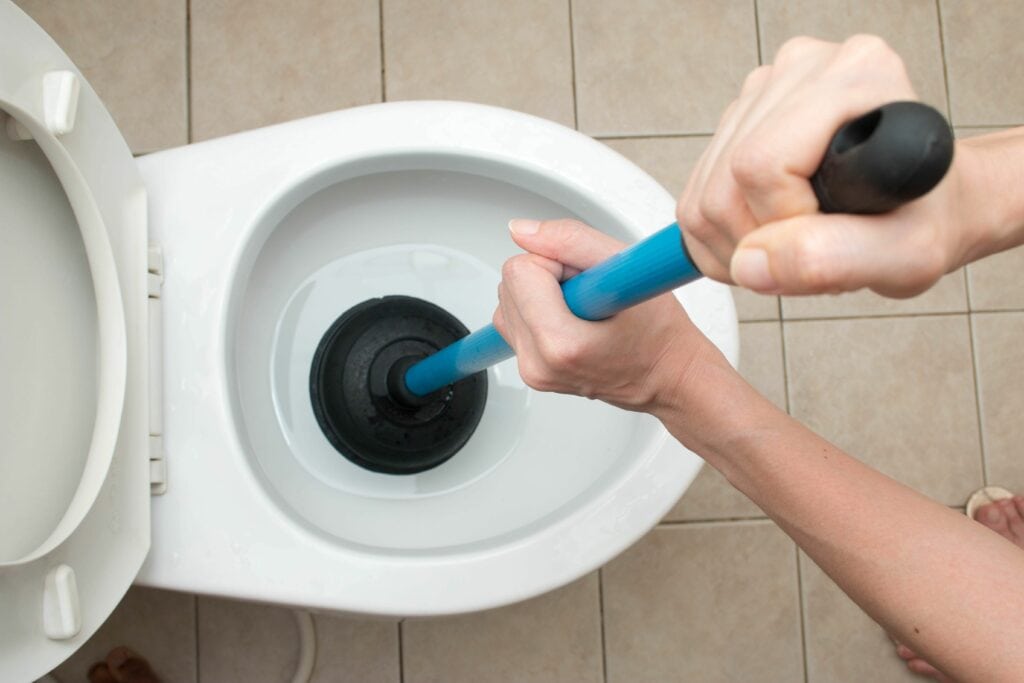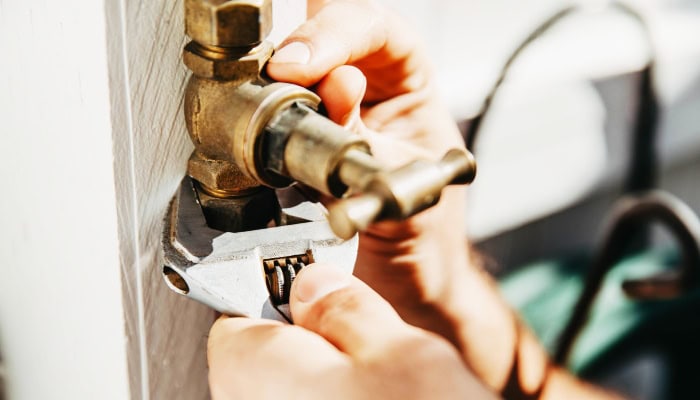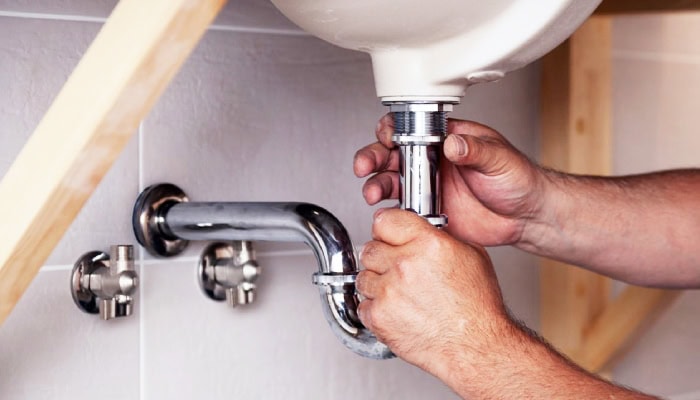Few concerns rival the urgency and potential devastation of plumbing emergencies in commercial properties. Whether it’s a burst pipe flooding an office floor or a sewage backup halting operations, the repercussions of inadequate preparation can be severe. Hence, understanding the nuances of emergency plumbing preparedness for commercial properties is not just prudent; it’s paramount.
Plumbing emergencies are an unfortunate reality faced by many businesses, stemming from the intricacies of commercial plumbing systems. These systems, unlike their residential counterparts, are often larger in scale, serving multiple users and carrying heavier loads. Consequently, any glitch within a commercial plumbing system has the potential to escalate into a full-blown plumbing emergency, disrupting daily operations and incurring significant financial losses.
Moreover, the sheer diversity of commercial establishments – ranging from office buildings to restaurants, hotels to retail stores – means that the nature of plumbing emergencies can vary widely. What might constitute a minor inconvenience in one setting could spell disaster in another. Therefore, a nuanced understanding of the unique challenges posed by commercial plumbing is essential for effective emergency preparedness.
Exploring the intricacies of plumbing emergencies in commercial settings, this article delves into the nuances of commercial plumbing systems and equips property managers and business owners with the knowledge and tools necessary to navigate and mitigate these crises. From preventative measures to emergency response protocols, we aim to provide a comprehensive guide to safeguarding commercial properties against the perils of plumbing emergencies. So, let’s dive in and unravel the complexities of commercial plumbing and its implications for emergency preparedness.

Understanding Common Plumbing Emergencies
Commercial plumbing emergencies can strike unexpectedly, causing disruptions and financial setbacks for businesses. From burst pipes to sewage backups, these crises require prompt attention and effective solutions to minimize damage and restore operations swiftly. In this section, we explore some of the most prevalent commercial plumbing emergencies and outline essential strategies for managing them, including how to unblock a toilet.
One common plumbing emergency that can occur in commercial properties is a blocked toilet. When faced with a blocked toilet, knowing how to unblock it promptly can prevent further inconvenience and potential damage. Employing the right tools and techniques, or enlisting the help of a professional plumbing service, can swiftly resolve this issue and restore normalcy to the commercial property.
Beyond blocked toilets, commercial properties may encounter a range of plumbing emergencies, including burst pipes, leaks, and sewer line backups. These emergencies can stem from various factors, such as aging infrastructure, extreme weather conditions, or undetected plumbing issues. Regardless of the cause, addressing these emergencies promptly is crucial to prevent extensive damage and costly repairs.
In the event of a plumbing emergency, having access to a reliable commercial plumber is essential. Commercial plumbers specialize in addressing the unique needs and challenges of commercial properties, offering timely and effective plumbing solutions to mitigate emergencies and minimize downtime. Establishing a relationship with a reputable plumbing service ensures that businesses can respond swiftly to plumbing emergencies and safeguard their commercial property against potential damage.
By understanding common commercial plumbing emergencies and investing in proactive plumbing solutions, businesses can mitigate risks and ensure the continued functionality of their commercial properties. In the next section, we will delve into the importance of developing a comprehensive emergency plan to effectively manage plumbing emergencies in commercial settings.
Developing a Comprehensive Emergency Plan
In the fast-paced world of commercial property management, preparation is key to mitigating the impact of plumbing emergencies. A well-maintained plumbing system not only minimizes the risk of emergencies but also ensures the smooth operation of businesses. In this section, we explore the importance of developing a comprehensive emergency plan to handle commercial plumbing emergencies effectively, including the essential aspects of grease trap maintenance, commercial plumbing maintenance, and accessing emergency plumbing services.
One crucial aspect of commercial plumbing maintenance is grease trap maintenance. Grease traps play a vital role in preventing fats, oils, and grease (FOG) from entering the sewer system and causing blockages. Regular cleaning and maintenance of grease traps are essential to ensure their proper functioning and prevent plumbing emergencies such as sewer line backups. By incorporating grease trap maintenance into their plumbing maintenance routine, businesses can minimize the risk of costly and disruptive emergencies.
Furthermore, a well-maintained plumbing system is less susceptible to failures and emergencies. Regular inspections, proactive repairs, and preventive maintenance measures help identify and address potential issues before they escalate into emergencies. Businesses should establish a schedule for commercial plumbing maintenance, including inspections of pipes, fixtures, and drainage systems, to keep their plumbing systems in optimal condition and reduce the likelihood of emergencies.
Despite proactive maintenance efforts, emergencies may still occur. In such situations, having access to emergency plumbing services is crucial. Establishing a relationship with a reliable emergency plumbing service ensures prompt response and effective resolution of plumbing emergencies, minimizing downtime and mitigating damage to the commercial property.
Developing a comprehensive emergency plan involves more than just reactive measures; it requires proactive preparation and clear protocols for handling emergencies. Businesses should designate individuals or teams responsible for implementing the emergency plan, including steps for early detection, notification, and response to plumbing emergencies. Regular training and drills can help familiarize employees with emergency procedures and ensure a swift and coordinated response when emergencies arise.
By prioritizing grease trap maintenance, regular commercial plumbing maintenance, and access to emergency plumbing services, businesses can minimize the risk of plumbing emergencies and effectively handle any emergencies that may occur. In the next section, we will delve into the role of employee training and awareness in emergency preparedness for commercial plumbing.

Responding to Commercial Plumbing Emergencies
When commercial plumbing emergencies strike, swift and decisive action is essential to minimize damage, health risks, and disruptions to business operations. Among the most critical emergencies are gas leaks, burst pipes, and sewage backups, which can pose immediate dangers to occupants and property. In this section, we’ll explore how to handle commercial plumbing emergencies effectively and ensure the safety and continuity of business operations.
Identifying and Assessing Emergencies
The first step in responding to commercial plumbing emergencies is to promptly identify and assess the situation. Gas leaks, for instance, emit a distinct odor, while burst pipes may cause flooding or water damage. By being vigilant and attuned to signs of trouble, such as unusual water pressure fluctuations or foul odors, occupants can quickly recognize emergencies and take appropriate action.
Prioritizing Safety
Safety should always be the top priority when dealing with commercial plumbing emergencies. Gas leaks, in particular, pose significant health and safety risks, as they can lead to fires, explosions, or asphyxiation. In the event of a suspected gas leak, occupants should evacuate the premises immediately and contact the relevant authorities, such as the gas company or emergency services, from a safe location.
Containing the Emergency
Once the immediate safety of occupants has been ensured, efforts should be made to contain the emergency and prevent further damage. This may involve shutting off the water supply to stop a burst pipe from flooding the premises or isolating affected areas to contain sewage backups. Prompt action can help minimize the extent of damage and facilitate the restoration process.
Contacting the Right Emergency Plumbing Service
In emergencies where professional assistance is required, it’s crucial to contact the right emergency plumbing service promptly. Not all plumbing services are equipped to handle commercial emergencies, so businesses should ensure they have a reliable provider that specializes in commercial plumbing. A reputable emergency plumbing service will respond promptly and have the expertise and equipment to resolve the emergency safely and effectively.
Restoring Normal Operations
Once the emergency has been contained and addressed, efforts can be made to restore normal business operations. This may involve drying out flooded areas, repairing damaged plumbing fixtures, or restoring water supply and sewer lines. A comprehensive restoration plan should be implemented to minimize downtime and ensure the property is safe for occupants to return.
By being prepared and knowing how to respond effectively to commercial plumbing emergencies, businesses can mitigate risks, protect occupants, and minimize disruptions to operations. In the next section, we’ll explore proactive measures for preventing plumbing emergencies in commercial properties.

Proactive Measures for Emergency Preparedness
While handling commercial plumbing emergencies is crucial, proactive measures can help prevent such crises from occurring in the first place. In this section, we’ll discuss strategies for maintaining commercial spaces to minimize the risk of unexpected plumbing crises and uphold environmental responsibility.
Regular Maintenance and Inspections
Regular maintenance and inspections of plumbing systems are essential for identifying and addressing potential issues before they escalate into emergencies. By scheduling routine inspections of pipes, fixtures, and drainage systems, property managers can detect leaks, corrosion, or other signs of wear and tear early on. Timely repairs and maintenance can help prolong the lifespan of plumbing infrastructure and prevent unexpected emergencies.
Investing in Quality Fixtures and Equipment
Another proactive measure is investing in high-quality plumbing fixtures and equipment. Cheap or substandard fixtures are more prone to leaks, clogs, and other malfunctions, increasing the risk of emergencies. By opting for durable, reliable fixtures and equipment from reputable manufacturers, businesses can reduce the likelihood of plumbing emergencies and minimize the need for frequent repairs or replacements.
Implementing Water-Saving Measures
In addition to preventing emergencies, businesses can also take steps to reduce their environmental footprint by implementing water-saving measures. Installing low-flow toilets, faucets, and urinals can help conserve water and reduce strain on plumbing systems. Moreover, educating occupants about water-saving practices, such as turning off taps when not in use or reporting leaks promptly, can contribute to a culture of environmental responsibility within commercial spaces.
Employee Training and Awareness
Ensuring that employees are knowledgeable about plumbing systems and aware of potential risks is another crucial aspect of emergency preparedness. Providing training on how to identify and report plumbing issues, as well as basic maintenance tasks like clearing minor clogs or shutting off water mains, can empower employees to take proactive measures and respond effectively to emergencies if they arise.
Collaborating with Professional Plumbing Services
Finally, partnering with professional plumbing services that specialize in commercial properties can provide an added layer of protection against plumbing emergencies. These experts can offer valuable insights and recommendations for maintaining plumbing systems, as well as emergency response services in the event of unexpected crises. By establishing a collaborative relationship with a trusted plumbing service, businesses can ensure they have the support they need to address any plumbing challenges that may arise.

Maintaining Plumbing Systems in the Food Service Industry
In the food service industry, maintaining plumbing systems is of paramount importance to ensure the smooth operation of establishments and comply with health and safety regulations. Regular plumbing maintenance is essential for addressing common plumbing problems and preventing emergencies that could disrupt business operations. In this section, we’ll explore the unique challenges faced by the food service industry and the importance of maintaining grease traps to prevent plumbing issues.
The food service industry presents specific challenges for plumbing systems due to the nature of its operations. Restaurants, cafeterias, and other food establishments often generate large volumes of grease, oil, and food waste, which can accumulate in plumbing lines and lead to clogs and backups. Regular maintenance of plumbing systems is essential to prevent these issues and maintain hygiene standards.
One crucial aspect of plumbing maintenance in the food service industry is maintaining grease traps. Grease traps are designed to intercept and collect fats, oils, and grease (FOG) from wastewater, preventing them from entering the sewer system and causing blockages. Regular cleaning and maintenance of grease traps are essential to ensure they function effectively and prevent plumbing problems such as clogged drains and sewer backups.
In addition to maintaining grease traps, food service establishments should prioritize regular plumbing maintenance to address any potential issues before they escalate into emergencies. This includes inspecting and cleaning drainage lines, checking for leaks or corrosion in plumbing fixtures, and ensuring proper functioning of water supply and sewage systems. By staying proactive and vigilant, businesses can minimize the risk of plumbing emergencies and maintain a safe and sanitary environment for employees and customers.
Furthermore, educating staff about proper waste disposal practices and the importance of reporting plumbing issues promptly can help prevent problems from arising in the first place. Encouraging a culture of responsibility and accountability when it comes to plumbing maintenance can go a long way in preserving the integrity of plumbing systems and avoiding costly repairs or downtime.
Conclusion
Being prepared for plumbing emergencies is not just a prudent measure but a fundamental aspect of safeguarding business operations and ensuring the safety of occupants. Throughout this article, we have explored the nuances of emergency plumbing preparedness for commercial properties, delving into common plumbing emergencies, proactive maintenance strategies, and the importance of swift and effective response protocols.
From burst pipes to sewage backups, the potential for plumbing emergencies in commercial properties is ever-present. However, by implementing proactive measures such as regular maintenance, investing in quality fixtures, and developing comprehensive emergency plans, businesses can mitigate risks and minimize the impact of emergencies on their operations.
Key to effective emergency preparedness is the collaboration with professional plumbing services that specialize in commercial properties. These experts offer invaluable insights, timely assistance, and peace of mind, ensuring that businesses can respond swiftly and effectively to plumbing emergencies when they arise.
Furthermore, industries with specific challenges, such as the food service industry, must prioritize maintenance of grease traps and adherence to hygiene standards to prevent plumbing issues and ensure compliance with regulations.
Ultimately, maintaining a well-functioning plumbing system is not just a matter of operational efficiency; it’s a reflection of environmental responsibility and commitment to the well-being of employees, customers, and the community at large.
As businesses navigate the complexities of commercial property management, proactive plumbing preparedness should remain a top priority. By staying vigilant, investing in maintenance, and fostering a culture of responsibility, businesses can minimize disruptions, uphold safety standards, and ensure the continued success of their operations in the face of unexpected plumbing challenges.
In conclusion, let us recognize that by embracing proactive plumbing preparedness, businesses can turn potential crises into opportunities for growth and resilience in the landscape of commercial property management.



